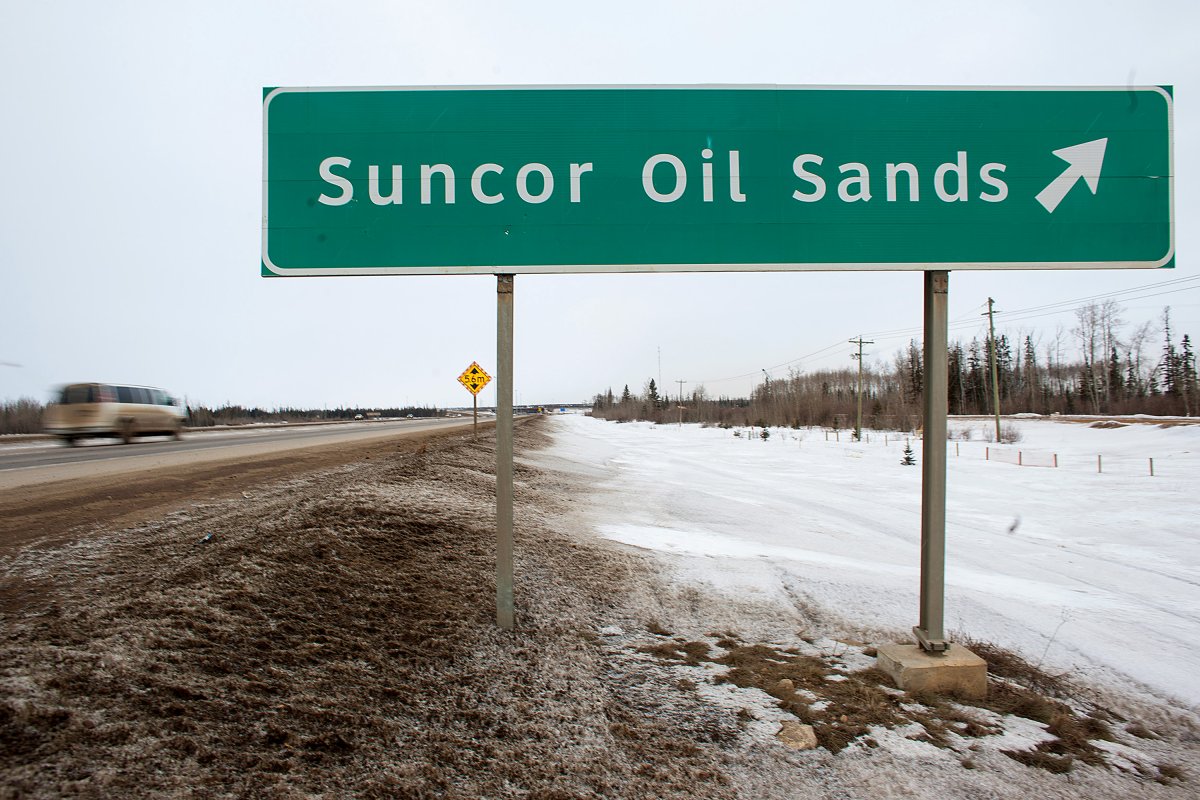EDITOR’S NOTE: This story has been updated to clarify that the Fort Hills mine is not shut down and no gas was released.

After oilsands workers at a new camp north of Fort McMurray said they haven’t been able to work at Suncor’s Fort Hills project since Wednesday, when a solvent was introduced, Global News has obtained a memo indicating they would be compensated for a longer-than-first-planned-for work stoppage as a result of the solvent’s introduction.
One worker said the solvent is pentane, a highly volatile hydrocarbon.
Staff were told the solvent work would take one day, but several days later, the site was still too unsafe. The employees said they weren’t being paid for the hours they were scheduled to work, and were being told if they leave the camp, they risk losing their jobs.
“There’s absolutely nothing to do and we’re not being paid to be here — and we can’t leave,” said a worker who asked to remain anonymous for fear of being fired and blacklisted by all oilsands companies.
READ MORE: Investigation underway after 123 dead birds discovered at Fort Hills oilsands site
The worker said thousands of staff are confined to the camp.
“They told us they weren’t going to pay us at all, and then I guess some unions fought and we got two hours a day. We’re scheduled for 12, so to get two hours a day is barely a token.”
However, on Monday afternoon, Global News obtained a memo to workers from Suncor‘s Fort Hills site leadership team that acknowledged “the extended duration of start-up activities has had a significant impact on those workers who have remained in camp throughout the activity,” and that eligible workers would receive compensation.
“In consideration of this unique situation, directly affected workers will be compensated for their lost wages beyond the initial 24-hour period. This reflects regular daily wages based on a 10-hour shift.
“Fort Hills will work with the employers of the impacted workers to facilitate payment of the missed wages in a timely manner.”
Earlier in the day, Suncor said it has “been working on providing additional compensation, which will be communicated in detail to these workers later.”
In a statement Sunday, Suncor said construction at the Fort Hills site has been “temporarily restricted.”
The memo obtained by Global News said Suncor is “committed to ensuring a safe work environment for workers on our sites.
“Schedule will never compromise safety — at Fort Hills, it is safety above all else.”
“Fort Hills is in the final commissioning and start-up stages of its Secondary Extraction assets. This involves the introduction of solvent into the plant.
“Final commissioning work has taken longer than anticipated to complete. We appreciate the frustration and apologize for the inconvenience this has caused — we are committed to remobilizing the construction workforce safely once this commissioning activity is complete.”
“The workers are employed by contractor companies, and will be compensated in accordance with the arrangements they have with their respective employers. For specifics, we would defer to the contractor companies themselves.”
Suncor’s Fort Hills mine is about 90 kilometres north of Fort McMurray in the remote, northern Alberta wilderness. The worker said people who want to be on the job are sitting in camp with nothing to do.
“It’s as close to a prison as you’re going to get,” he said, describing the accommodations in the drug- and alcohol-free camp. “If you were to have more than a couple of people in a room, the security are coming in and telling you to go back to your rooms.
“There’s absolutely nothing to do. There’s four pool tables and couple ping-pong tables and one card table for 1,500 guys. Prisons have more facilities than that.”
READ MORE: Fort McKay First Nation to invest $350M in Suncor oilsands project
The worker said he has been in the oil patch for many years and has never been treated this way.
“It’s right after Christmas and everyone has bills — just like everybody else, we’re no different. People think we make a lot of money — yeah, we do — but this isolation is hard enough, but to be locked in your room and have nothing to do and being told you’re not going to get paid for it… it’s really, really frustrating.”
READ MORE: Suncor going ahead with Fort Hills mine
Construction of Fort Hills was green-lit in 2013, after the project was shelved for five years due to the 2008 financial crisis. Most of the massive oilsands mine and processing facility is complete, but the last part of the plant to be commissioned is the “secondary extraction” facility, which processes bitumen froth into bitumen.
With a maximum capacity of 194,000 barrels per day, Fort Hills is one of the biggest oilsands projects, accounting for nearly 10 per cent of current oilsands production.
READ MORE: Fort Hills partners settle funding dispute, Total reduces stake in project
Fort Hills was expected to begin producing bitumen by the end of 2017, but Suncor said it would miss that target by two or three weeks. The oilsands site recently started to come online and is expected to reach 90 per cent capacity by the end of this year, but in the meantime, construction work continues in various areas.
Once fully operational, Suncor’s Fort Hills mine is expected to generate 1,600 jobs and have a lifespan of 50 years.
Last year, Suncor said delays caused by the Fort McMurray wildfire in 2016, along with construction changes to boost capacity, had added from $1.4 billion to $1.9 billion to Fort Hills’ estimated cost, taking it to between $16.5 billion and $17 billion.
— With files from The Canadian Press and Phil Heidenreich





Comments